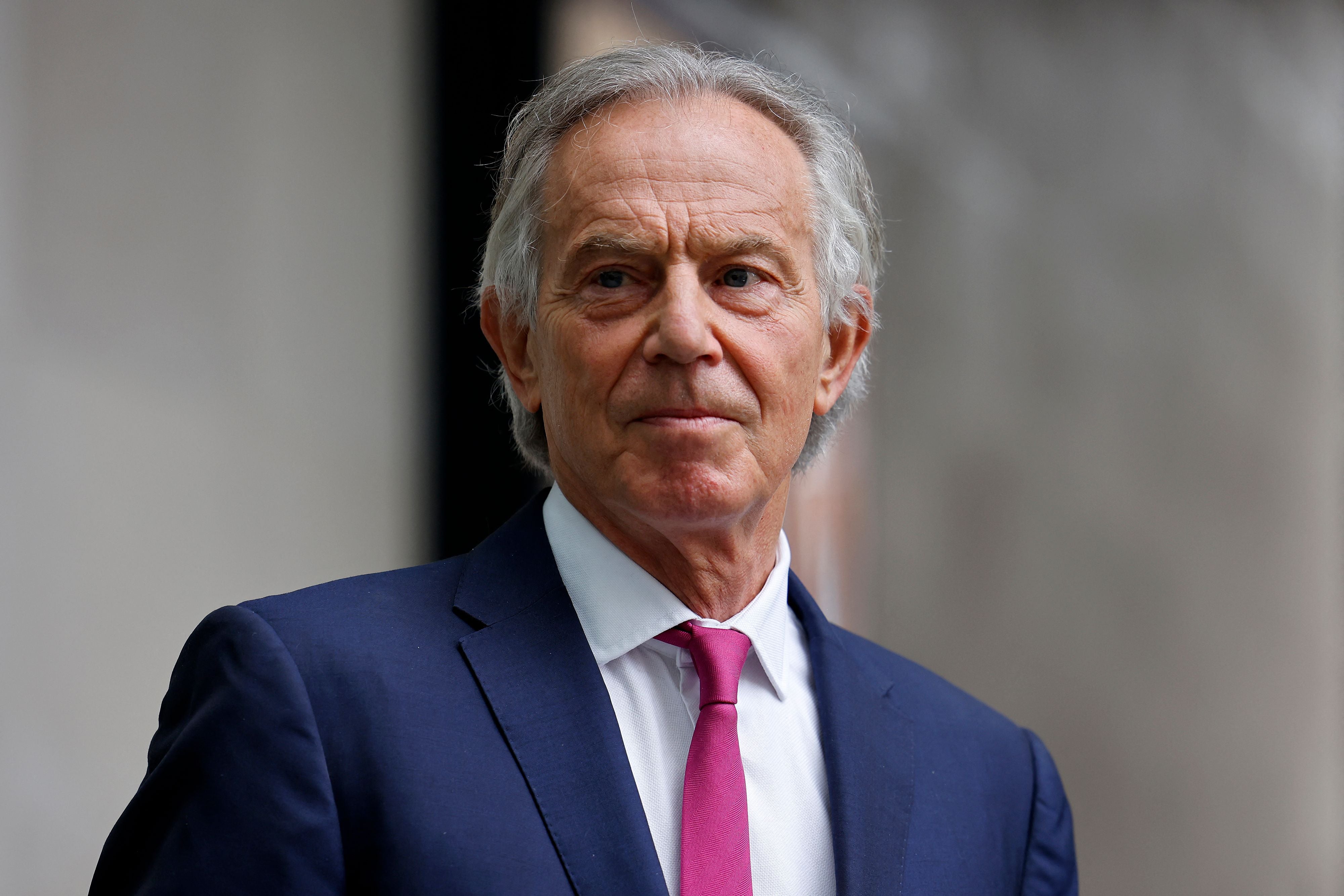Is the Labour Party finally learning to love Tony Blair?
After Starmer was cheered for referring to his party’s record in government, the BBC is set to broadcast a five-part documentary, ‘Blair & Brown: The New Labour Revolution’


“Where’s Peter Mandelson?” That was the most memorable heckle during Keir Starmer’s speech to Labour’s Brighton conference. Starmer himself said afterwards that he wished he had been quick-witted enough to respond, “In your head.” But the real answer is that Lord Mandelson is on the TV, in a five-part BBC documentary titled Blair & Brown: The New Labour Revolution, which starts on Monday.
The series reflects the same approach to the historical record as we try to pursue at King’s College London, where we teach a course on the Blair years. Watching the BBC programmes is a bit like having the best of our classes condensed into a TV blockbuster. There are the principals themselves, Tony Blair and Gordon Brown: older, more thoughtful, interviewed separately and then cut together so that they appear to be continuing the endless conversation in which they have been engaged since 1983, when they were both elected to parliament.
There are the cabinet ministers, civil servants and special advisers who made the New Labour government work, and through whom so much was achieved – as the Labour delegates in the conference hall finally brought themselves to acknowledge this week. They roared their approval when Sir Keir said “Take a look at our record the last time we were in government” and then listed those achievements: “You want levelling up? That’s levelling up.”
One of the stars of the programmes is Richard Wilson, one of Blair’s cabinet secretaries, whose eyebrows provide an independent commentary on his memory of the youthful prime minister declaring that he could solve Northern Ireland. We see the camera linger on Blair, Brown, Mandelson and Alastair Campbell after they have said their polished pieces, as their faces give away their true feelings.
There is some wonderful archive footage of baby-faced Ed Balls and Ed Miliband, and of Blair being besieged by angry women in a Belfast shopping centre as they scream that his hands are “covered in blood” after he shook hands with Gerry Adams, the Sinn Fein leader.
The programmes are made by the same team as made Thatcher: A Very British Revolution, using the same technique: no commentary, just interviewees telling the story, with archive footage – thus combining the vividness of history with the emotion of recollections in tranquillity, as Wordsworth didn’t quite put it.
We hope that the series will contribute to an important and necessary rebalancing of how people remember that period. In our view, Blair was a colossus who understood the art of government more subtly and more completely than any post-war prime minister. Looking back at himself as a new MP in his 30s, he tells the programme he thought at the time that “the Labour Party was the right idea, but badly executed”.
He proceeded to execute it better, ruthlessly focusing on the people’s priorities in order to win a huge mandate, but then, also, to put the right people and processes in place to make the machinery of government work to deliver change in the public services. “Tony was never happier than when talking to an audience that was not persuaded and persuading them,” says Matthew Taylor, a No 10 political adviser.
Of course there were divisions within the government, which were evident from the start. The second episode includes a clip of a young journalist called Boris Johnson, on Newsnight with a short back and sides, welcoming the “deep-rooted personal animosities” at the top of government: “Jolly good copy it will continue to make for us.”
The “TB-GBs” are uncannily echoed in the tensions between Keir Starmer and Angela Rayner today. Douglas Alexander tells the BBC that he thinks the tensions between Blair and Brown were constructive until 2001, at which point “they curdled and became destructive”. Sue Nye, Brown’s political secretary, says the two were “political giants, and sometimes they had difficulty occupying the same space”. Patricia Hewitt, health secretary under Blair, recalls the uncomfortable atmosphere in cabinet meetings, in which Brown sat opposite Blair, a huge pile of papers in front of him, not looking at the prime minister: “He was just so angry that he wasn’t sitting where Tony was.”
And yet, together, they achieved much in the cause of modernising and “levelling up” Britain. Much that has been obscured by the mythmaking of the overreaction against the Iraq war, an undertaking that was pursued – as viewers will see in episode four – with the best of intentions. Blair ought to be remembered for more than that, and we hope this series will help remind people of his record – even if, in the end, they still want to hold Iraq, or other matters they regard as failings, against him.
Anyone who has seen the trailer knows how it ends. “That’s politics,” says Blair.
Professor Jon Davis and John Rentoul are authors of ‘Heroes or Villains? The Blair Government Reconsidered’ (OUP), and consultants to the series ‘Blair & Brown: The New Labour Revolution’, which starts at 9pm on Monday 4 October on BBC Two
Join our commenting forum
Join thought-provoking conversations, follow other Independent readers and see their replies
Comments
Bookmark popover
Removed from bookmarks